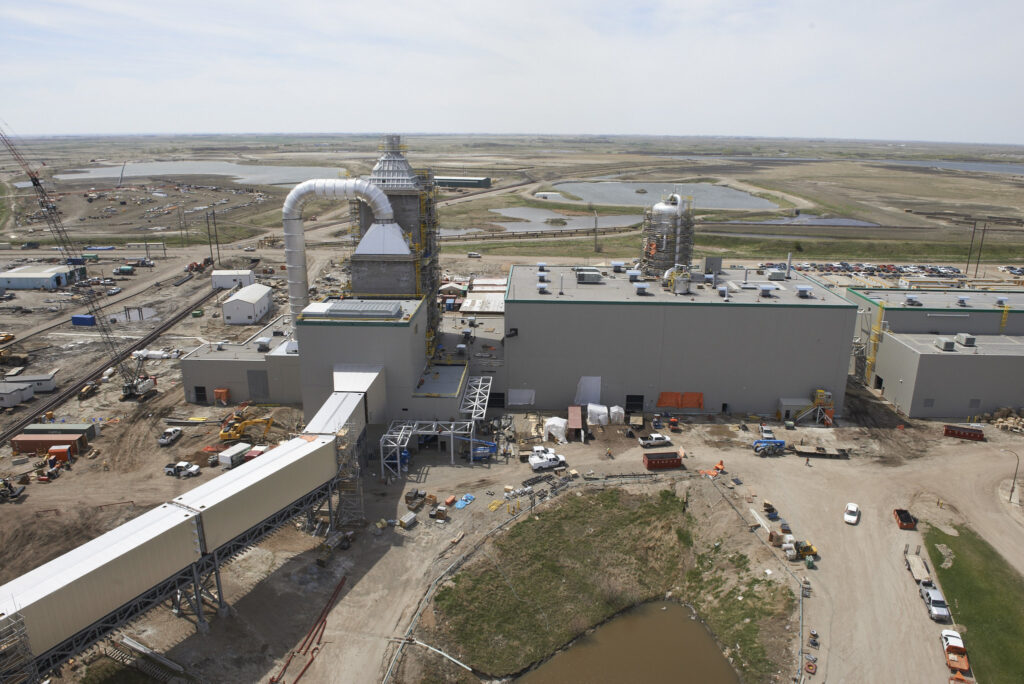We published hundreds of articles in 2023, from breaking news to live reporting, from COP28 to monthslong investigations. As the year comes to a close, we wanted to reflect on and celebrate that work. So get comfortable and join us for this highlight reel.
From the Global Team
American PR Firm Edelman Enabled Oil Baron Al Jaber’s Ascension to Lead COP28 Climate Conference
By Cartie Werthman
In 2023 we returned to our roots and investigated the ongoing relationship between the fossil fuel industry and advertising and public relations firms. We analyzed hundreds of pages of documents filed with the U.S. Department of Justice that shed light on a $6.4 million campaign Edelman carried out on behalf of the United Arab Emirates from 2007 to 2009. The campaign aimed to boost the petrostate’s green reputation and cast Sultan Ahmed Al Jaber as the face of its clean energy future, ultimately laying the groundwork for the United Nations to choose the UAE as the host of this year’s crucial UN climate talks. Rewind time to 2007 to learn how it went down.
Reuters, New York Times Top List of Fossil Fuel Industry’s Media Enablers
By Amy Westervelt, Matthew Green, and Joey Grostern
We joined forces with Drilled Global to turn the lens on to how the world’s largest oil companies benefit from the credibility of trusted media brands. Our investigation pored over the advertorials, newsletters, videos, and podcasts created by the in-house brand studios of marquee publications — including Bloomberg, The Economist, The New York Times, and others — on behalf of fossil fuel companies. Media outlets defended this practice of creating news-adjacent content for advertisers and emphasized the firewall between advertising and news staffs, but a growing body of peer-reviewed research shows that readers don’t always understand the difference between journalism and this so-called “sponsored content.”
Fossil Fuel Companies Made Bold Promises to Capture Carbon. Here’s What Actually Happened.
By Michael Buchsbaum and Edward Donnelly
Carbon capture and storage got so much buzz this year, but our reporters went beyond the hype. This comprehensive review of 12 large-scale CCS projects worldwide looked at what the fossil fuel industry promised and what actually happened. Buchsbaum and Donnelly uncovered a litany of missed carbon capture targets, cost overruns, and billions of dollars of costs to taxpayers in the form of subsidies — and broke down how the CCS hype is little more than a fossil fuel escape hatch.
From the Canada Team
Meet the ‘Extreme’ Atlas Network Groups Fighting Canada’s Oil and Gas Emissions Cap
By Geoff Dembicki
Within hours of Canada’s federal government announcing key details of its plans to cap greenhouse gas emissions within the oil and gas sector, an array of attacks against it started popping up. On the surface, these seemed organic — they came from vastly different parts of the country and appeared in a range of media outlets. But all came from organizations that are long-time members of the Atlas Network, a U.S.-based libertarian network that has previously received funding from foundations associated with Koch Industries and ExxonMobil.
Indigenous Group Fighting Emissions Cap Quietly Supported by Top Canadian Oil Company
By Geoff Dembicki
Dembicki also covered the fossil fuel industry’s efforts to quietly support Indigenous groups in Canada that have supported projects or fought the proposed federal emissions cap. In this investigation, he shed light on how Cenovus, a Calgary-based oil sands company, paid for membership with the Indigenous Resource Network, a group that campaigned against the cap.

Report: Canada and U.S. Are Top Public Funders for CCS with Nations Prepared to Inject $200 Billion More
By Taylor Noakes
Journalist Taylor Noakes followed the CCS beat, among others, in Canada this year. In his coverage of a new report he showed how Canada was the second-largest funder of CCS globally, with $2.2 billion in support provided since 2009. That figure doesn’t include a $10 billion federal carbon capture tax credit announced during COP28. We’ll keep following the money in 2024.
From the U.S. Team
Big Oil’s Been Secretly Validating Critics’ Concerns about Carbon Capture
By Dana Drugmand
Climate campaigners aren’t the only ones concerned about carbon capture and storage — Big Oil’s got doubts about it too. Dana Drugmand waded through internal oil industry communications that were gathered as part of the U.S. House Oversight Committee’s investigation into the fossil fuel industry’s climate disinformation. She found statements acknowledging that CCS enables or prolongs the use of fossil fuels, admissions of the challenges or limitations of CCS, and references to the need for federal funding or policy support to make it viable. These narratives are a far cry from Big Oil’s public statements about carbon capture and storage.
The Battle to Stop Air Products’ Carbon Capture Project at Lake Maurepas Grows
By Julie Dermansky
Veteran multimedia journalist Julie Dermansky took a different approach to reporting on carbon capture and storage this year: She dove deep into community opposition to a proposed CCS project in Southern Louisiana that would be the world’s largest. With haunting photos and rigorous reporting, she painted the picture of an unusual group of locals — few of whom identify as environmentalists — fighting the project, which would sequester carbon under the ecologically vital Lake Maurepas. One source put it succinctly: “There is no amount of money that would make us understand this and accept it. We are fine the way we are.”
In West Virginia, Plan to Clean up Radioactive Fracking Waste Ends in Monster Lawsuit
By Justin Nobel
Another DeSmog journalist who had their eye on the frontline impacts of the fossil fuel industry was Justin Nobel. His most recent investigation dove into what went wrong at a facility that aimed to turn radioactive fracking waste into freshwater and food grade quality salts. Proponents hailed it as one of the most important environmental projects undertaken by the oil and gas industry in recent U.S. history — but after a mere 22 months of operation, the facility was idled and its operators are locked in a gargantuan legal battle. Nobel showed how a lack of transparency has made it almost impossible for communities to hold such companies to account when projects fail, or understand the kinds of health or environmental risks they may pose.

From the UK Team
Media Blitz Against Heat Pumps Funded by Gas Lobby Group
By Phoebe Cooke
As spiralling heating bills fuel a cost of living crisis, oil and gas lobbyists have been mounting a rearguard defence of their industries, attacking renewable alternatives. This was seen acutely in the case of heat pumps, an environmentally friendly way of heating homes, which have been pilloried by fossil fuel interests.
In an exclusive investigation co-published by the Guardian, DeSmog revealed the progenitor of these attacks: a PR firm funded by the Energy and Utilities Alliance, which represents gas boilers and manufacturers. Our investigation caused the government to distance itself from the trade body, and ministers have now pledged a new injection of funding for the uptake of heat pumps. Not a bad day’s work.
Fossil Fuel Giants Are Using British Influencers to Go Viral
By Dimitris Dimitriadis, Joey Grostern, and Sam Bright
The world now turns to the tune of 30- second videos – a fact that doesn’t seem to have escaped some of the globe’s biggest polluters. We uncovered more than 100 influencers who have been paid to promote fossil fuel firms since 2017, from the U.S. to Malaysia, in campaigns that have reached billions of people. This included a “‘granfluencer”’ who promoted Shell to her two million followers, and a bunch of UK influencers who pumped out oil and gas propaganda.
These tactics were also apparent at COP28, during which its official team’s PR company commissioned popular social media users to boost the UAE’s otherwise dubious green credentials.
Big Meat and Dairy Delegates Triple at COP28
By Rachel Sherrington, Clare Carlile, and Hazel Healy
DeSmog also caused a stir at COP28 by releasing its flagship analysis of ‘Big Ag’ delegates, in partnership with the Guardian. This year was the biggest COP ever, with over 84,000 participants, and among the assembled masses were a record number of lobbyists for industrial agriculture companies and trade groups. DeSmog was on hand to make sure they couldn’t fly under the radar.
Meetings Blitz Between Big Ag and Anti-Green Lawmakers in Europe
By Clare Carlile
The emissions produced by the world’s top five meat companies are estimated to be significantly larger than those of the world’s oil giants, and their lobbying is often more aggressive. In Europe, agriculture and farming has become a political battleground, with vested interests seeking to stifle green reforms.
Analysing a slew of transparency data, DeSmog revealed that, during a three-and-a-half year period, over 400 meetings took place between agriculture lobby groups and key members of the European Parliament who have been at the forefront of efforts to stall green farming reforms. With the European Parliament holding its latest elections in June 2024, this lobbying campaign is only set to intensify.
Scale of The Telegraph’s Climate Change ‘Propaganda’
By Joey Grostern, Michaela Herrmann, and Phoebe Cooke
The Conservative Party is backtracking on the UK’s climate commitments, spurred by right-wing media platforms that are awash with fossil fuel money and climate science denial.
In an attempt to quantify the scale of this anti-green push, several DeSmog journalists had the pleasure of reviewing 2,000 opinion pieces and editorials published by The Telegraph over a six-month period up to 16 October. We found that 85 percent of the newspaper’s articles on green issues attacked climate policy, questioned climate science, and/or ridiculed environmental groups.
Bob Ward, policy and communications director at the Grantham Research Institute on Climate Change and the Environment, said the editors of The Telegraph had “lost their minds when it comes to climate change”.
Subscribe to our newsletter
Stay up to date with DeSmog news and alerts






